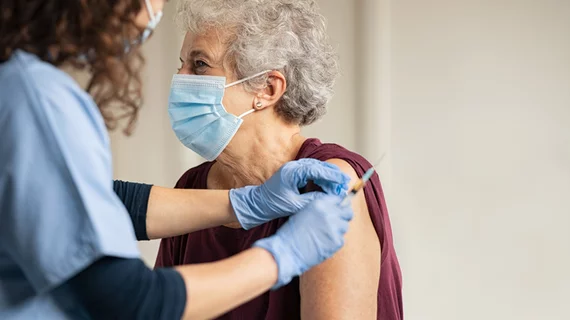Alarming study on COVID-19 vaccine side effects withdrawn after authors recognize key mistake
In September, researchers out of the Ottawa Heart Institute shared a preprint study that highlighted the potential risk of myocarditis after receiving a COVID-19 vaccine. The group’s key finding was that heart damage was being seen in approximately 1 in 1,000 patients—a significantly higher number than any previous study—and it quickly caught the attention of both vaccine critics and researchers who were generally alarmed by the statistic.
However, as CBC News and other news outlets pointed out, the authors made a massive error with their calculations. The real rate of myocarditis among vaccine recipients, it turns out, was much closer to 1 in 25,000 patients.
The authors withdrew their study altogether once they realized they had made this mistake.
“In order to avoid misleading either colleagues or the general public and press, we the authors unanimously wish to withdraw this paper on the grounds of incorrect incidence data,” they wrote in a statement. “We thank the many peer reviewers who went out of their way to contact us and point out our error. We apologize to anyone who may have been upset or disturbed by our report.”
Timothy Caulfield, Canada Research Chair in health law and policy at the University of Alberta, shared his frustrations about preprint studies during the ongoing COVID-19 pandemic with CBC News.
"First of all, the topic is so sensitive with parents, with young adults,” he said. “When people are doing this risk-benefit calculus and they see a study like this, even if it just crosses their radar on social media, it can have an impact on their intentions. So a mistake like this can do real, serious harm—and I think it probably already has, unfortunately.”
Another expert in this area also spoke to CBC News. Jonathan Jarry, MSc, a biological scientist at McGill University in Canada, noted that mistakes like this one can do a lot of damage in a small amount of time.
“Preprints can quickly be weaponized by activists when the data seems to bolster their ideology, and they lend credibility to claims that might otherwise appear non-scientific,” he said. “And when a preprint gets retracted because it was fraudulent or just simply incorrect, that bell is hard to un-ring in the public square that is the internet.”

